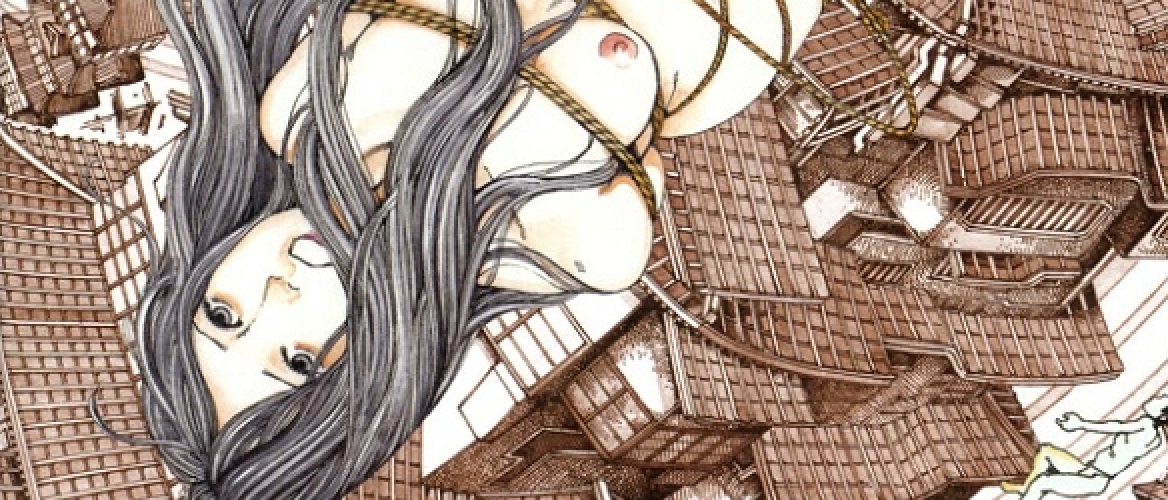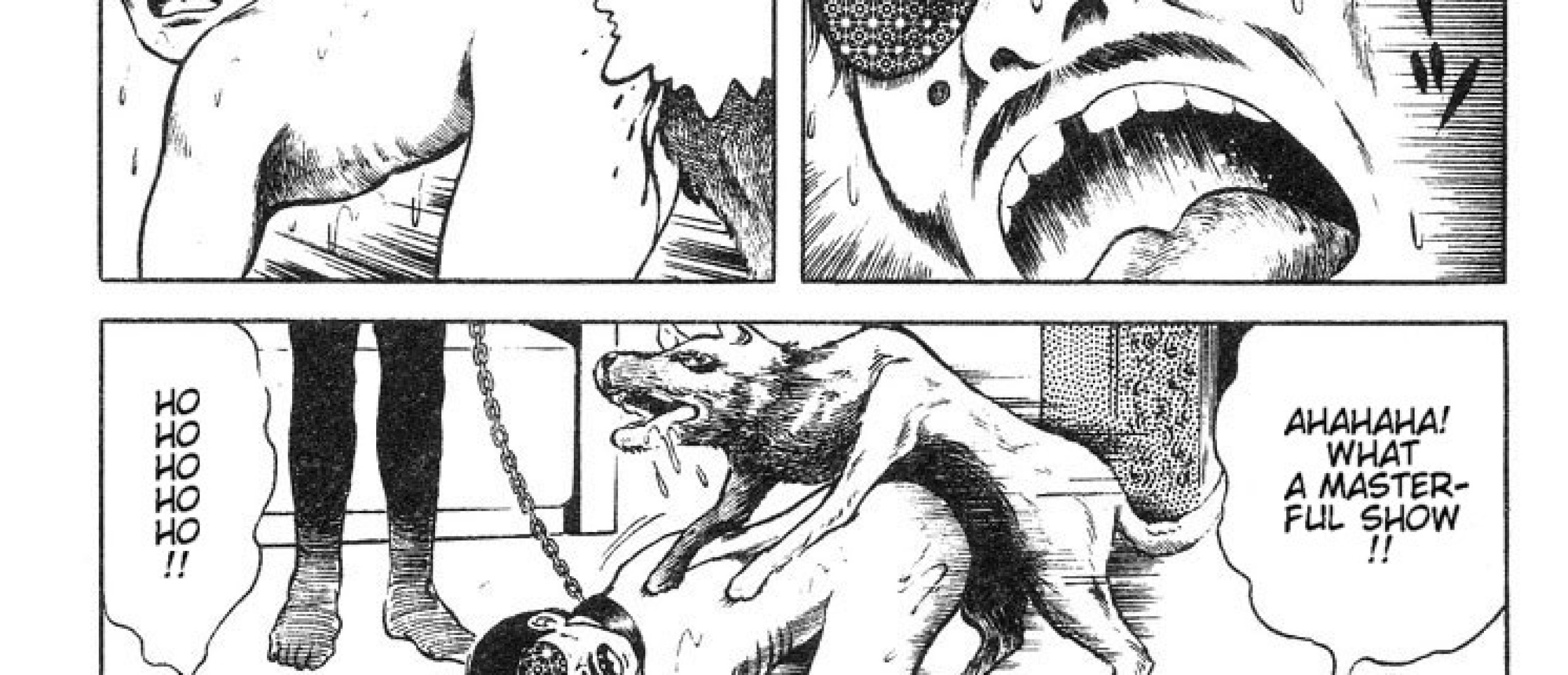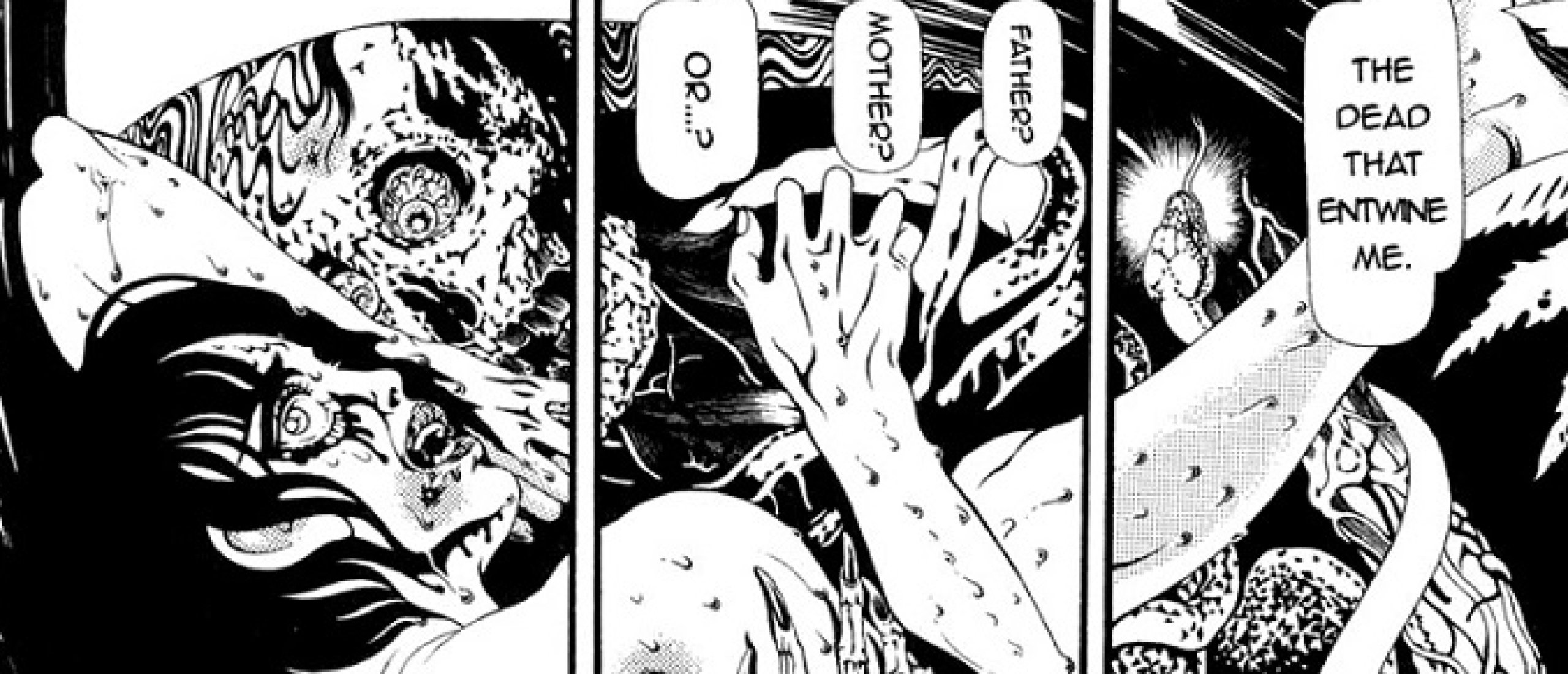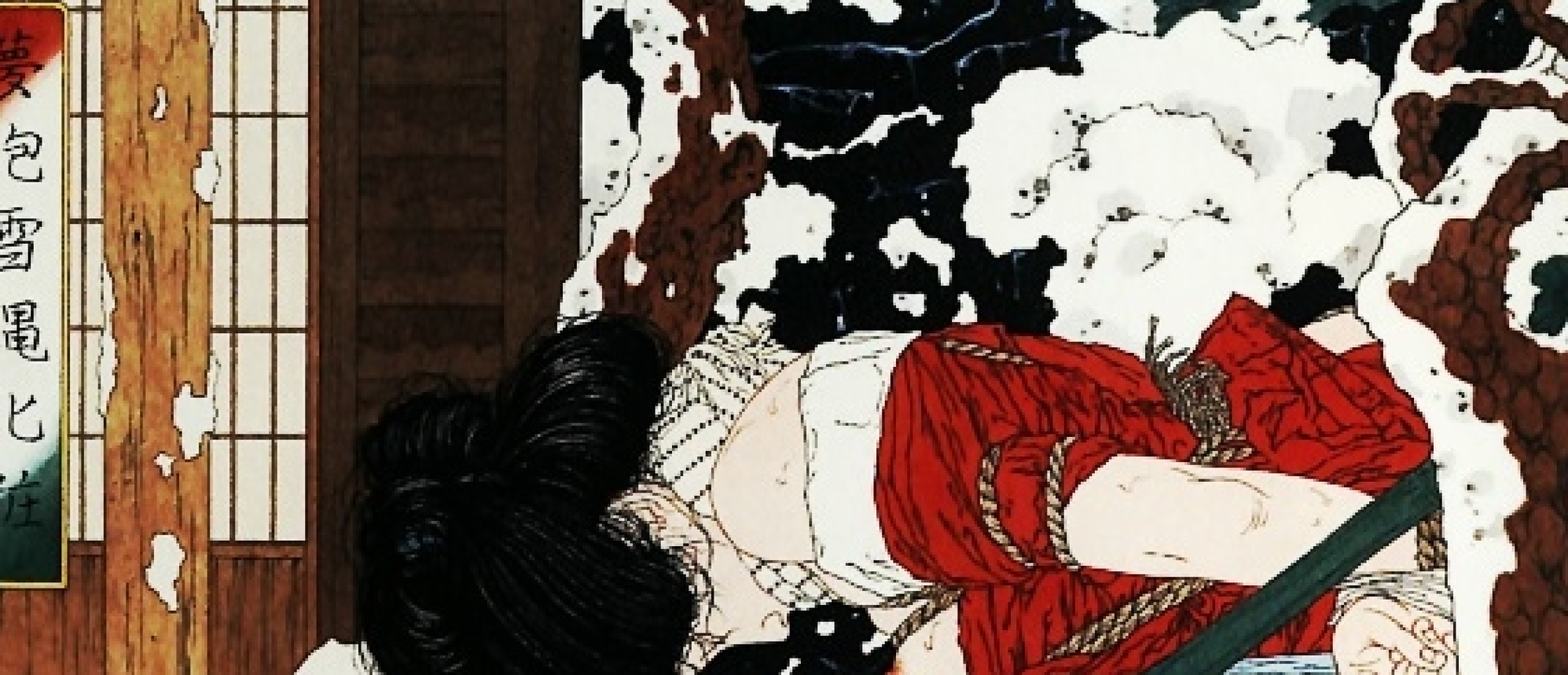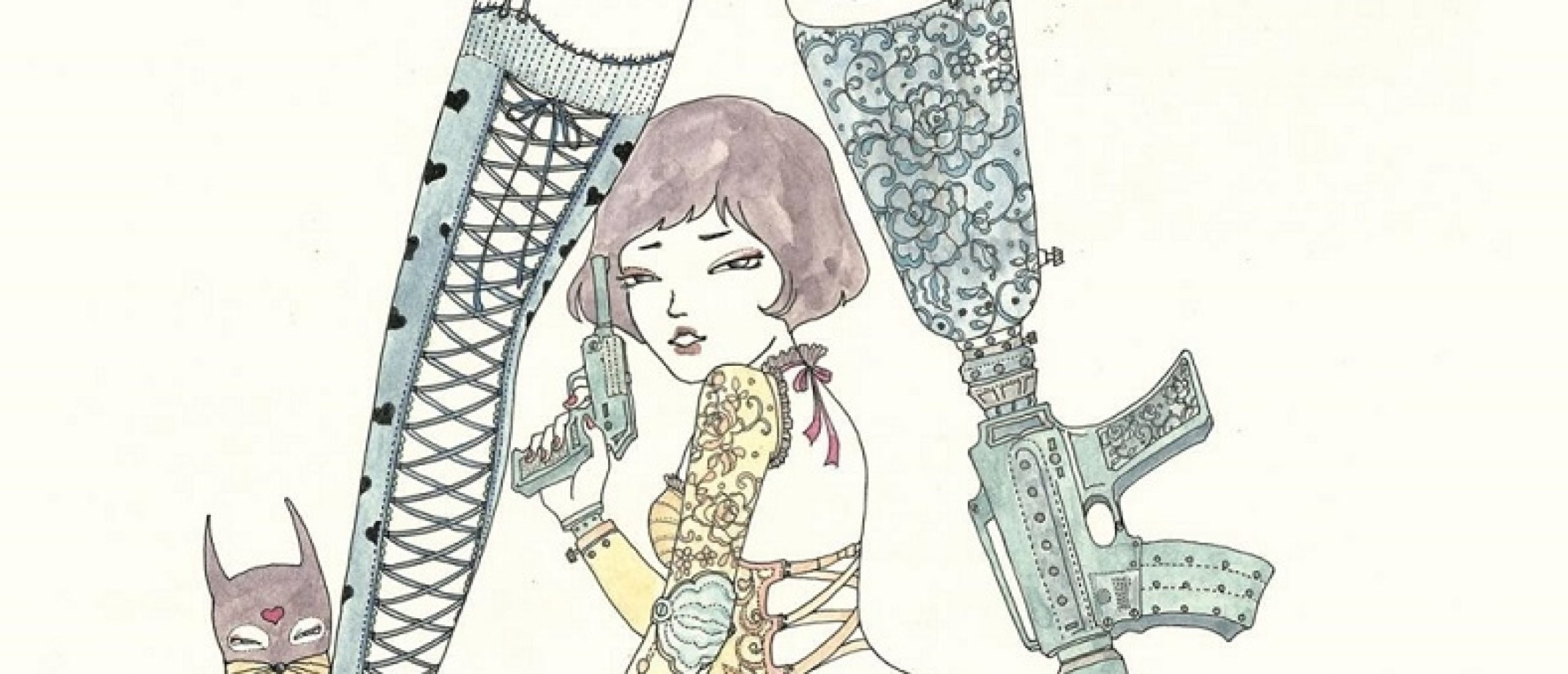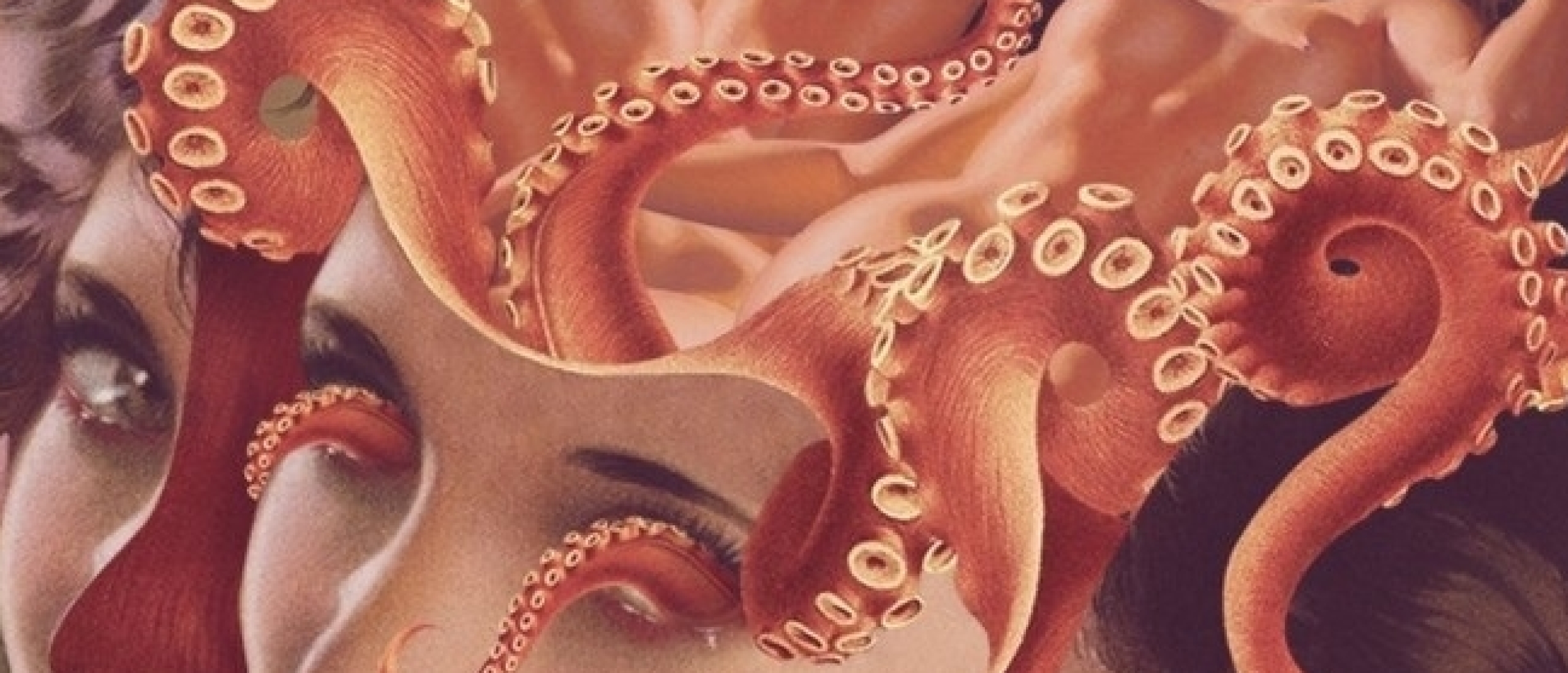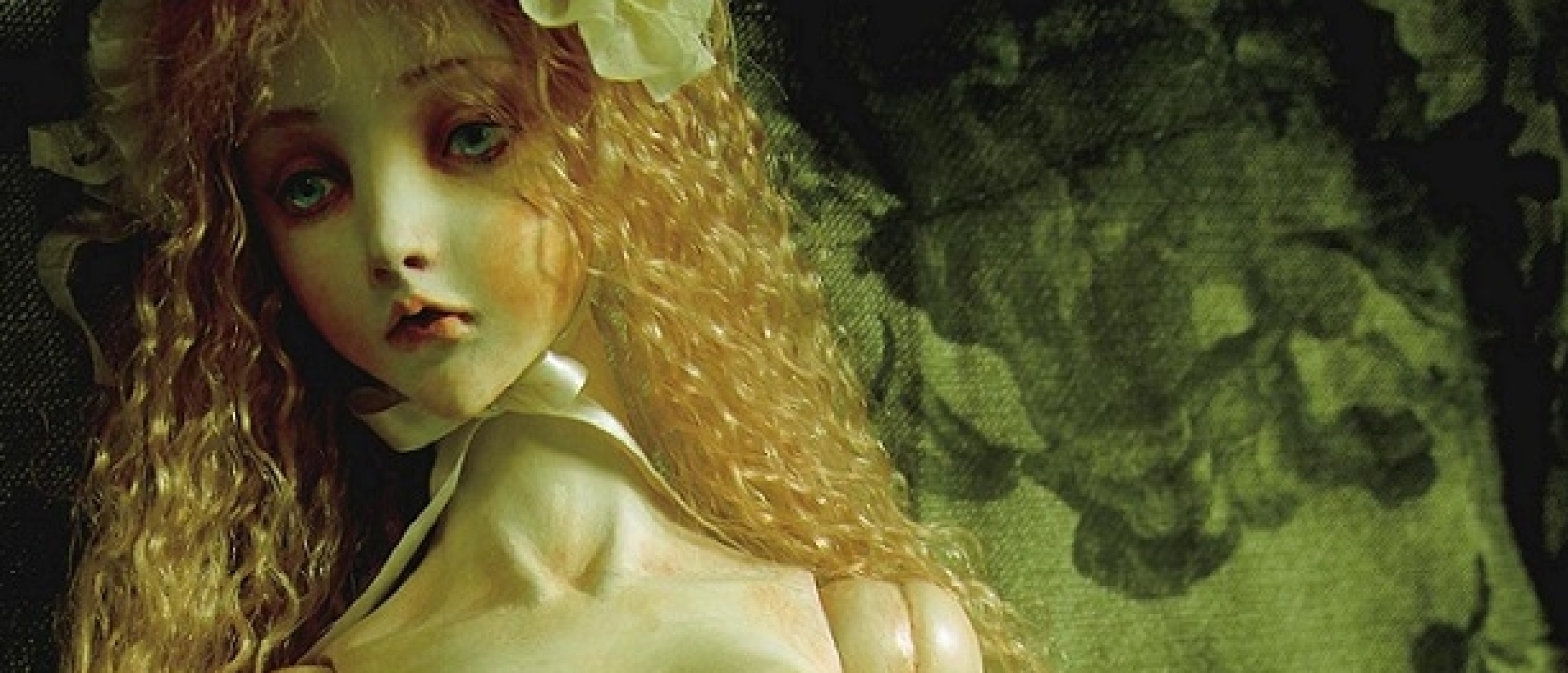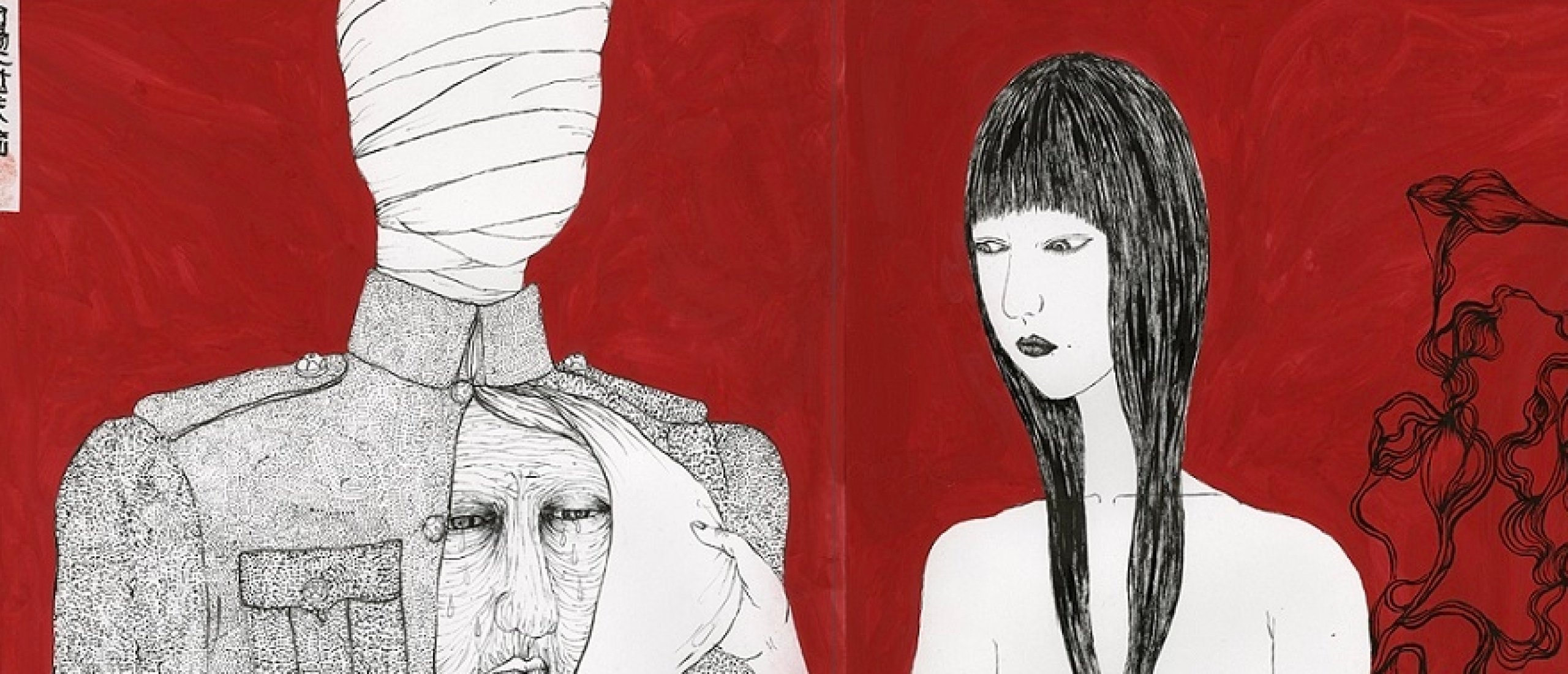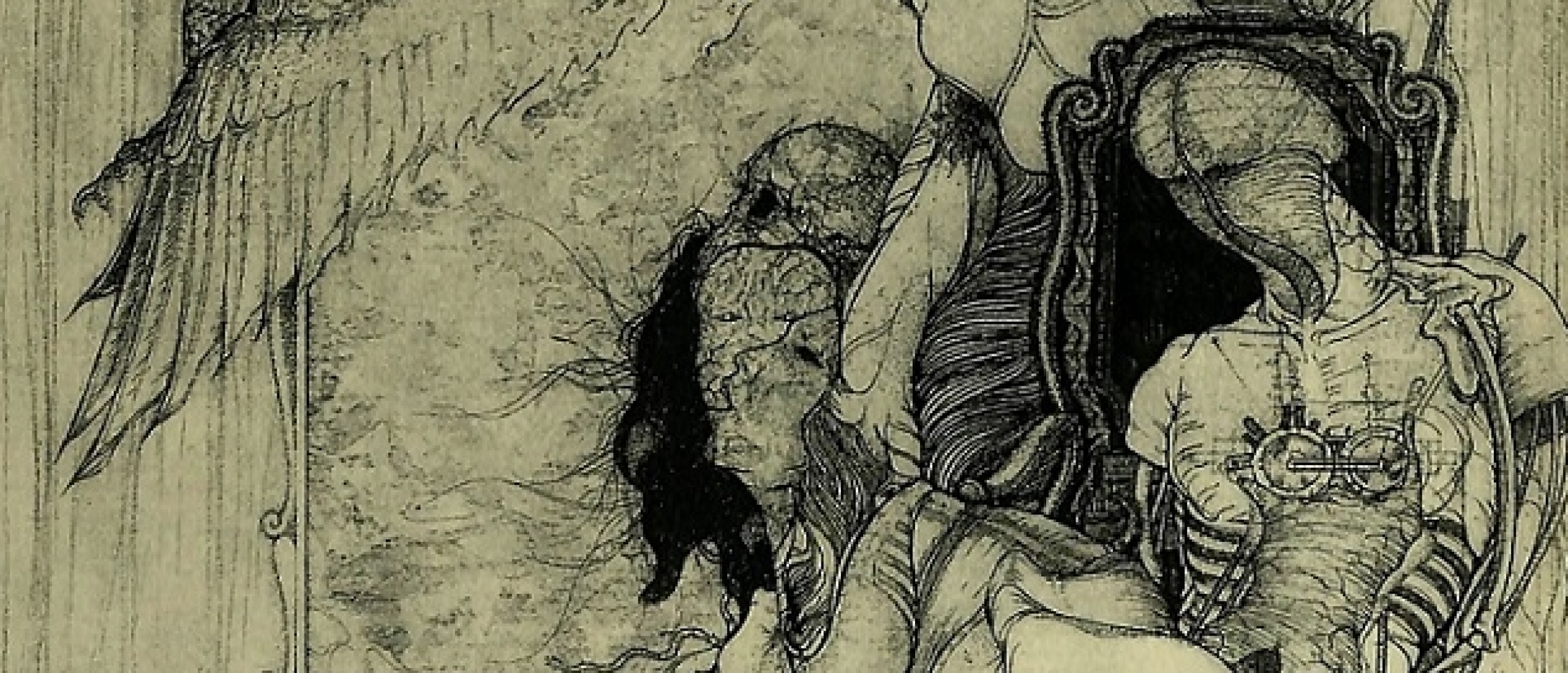
Shin Taga is a Japanese artist recognized for his engravings in which we can find all the characteristics that define the ero guro nansensu, an artistic and cultural movement that flourished in Japan during the 1920s and 1930s. The term is an abbreviation of "erosu" (eros, referring to erotic or sensual themes), "gurotesuku" (grotesque) and "nansensu" (nonsense).
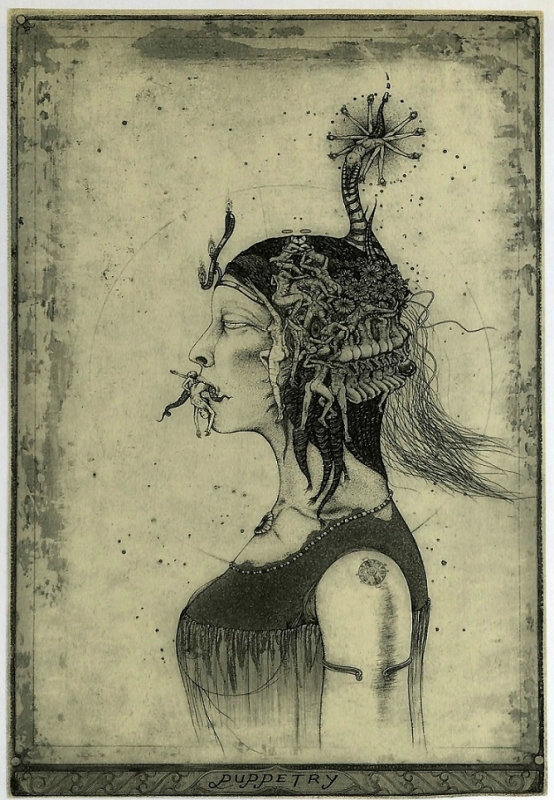
Fig.1. The World of Edogawa Ranpo (1991) by Shin Taga

Fig.2. The World of Edogawa Ranpo (1991)
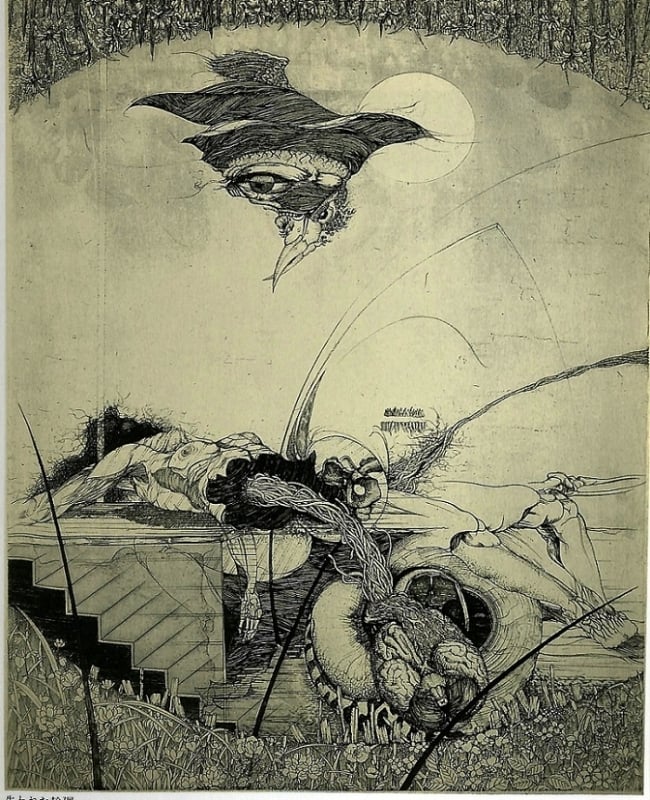
Fig.3. The World of Edogawa Ranpo (1991)
Freelance Artist
When researching Shin Taga on the Internet, we found a basic biography of the artist with the following information: he was born in 1946 in Tokyo, Japan. He studied art at Tokyo University of the Arts, where he specialized in printmaking. After graduating, Shin Taga began working as a freelance artist, presenting his work in solo and group exhibitions in Japan, Europe and the United States. This is the only information we have about the artist, so we only have his work to comment on.
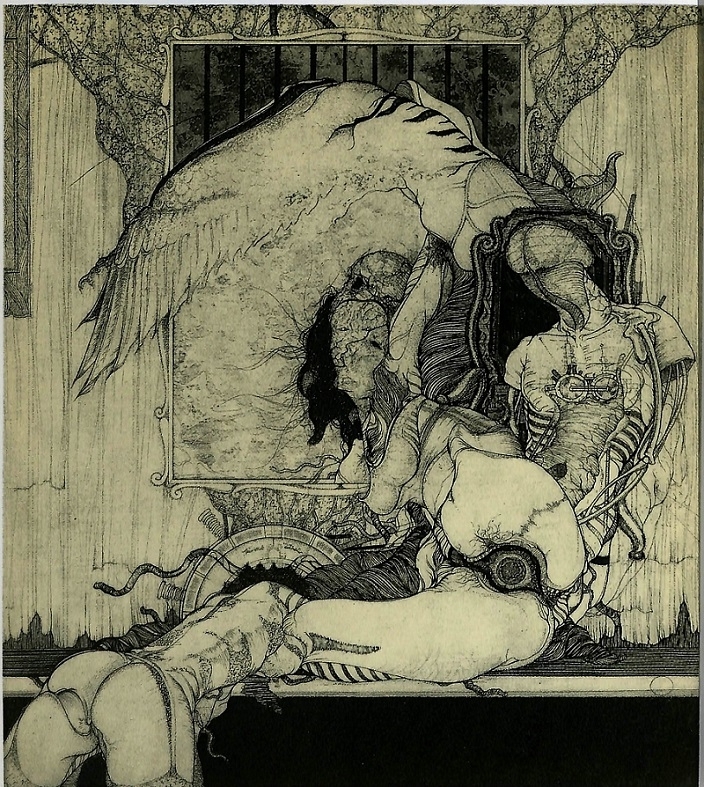
Fig.4. The World of Edogawa Ranpo (1991)
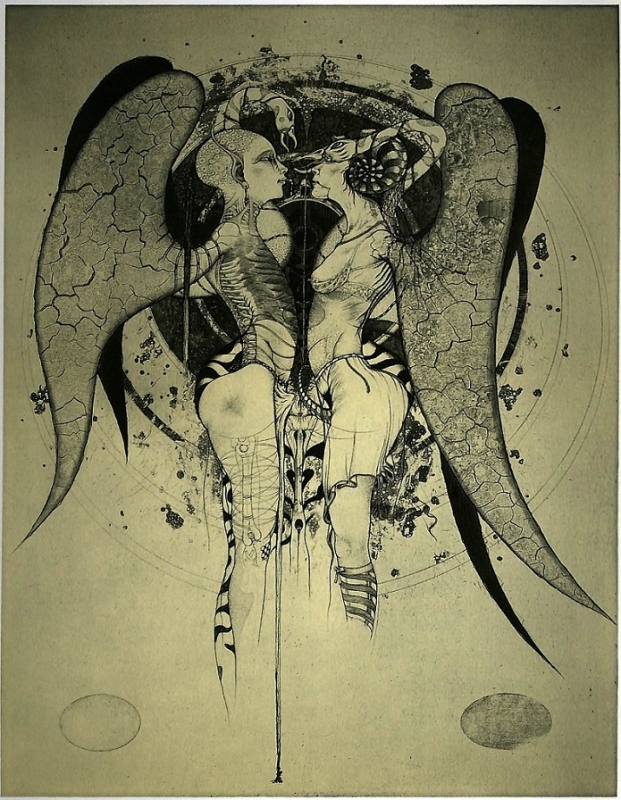
Fig.5. The World of Edogawa Ranpo (1991)
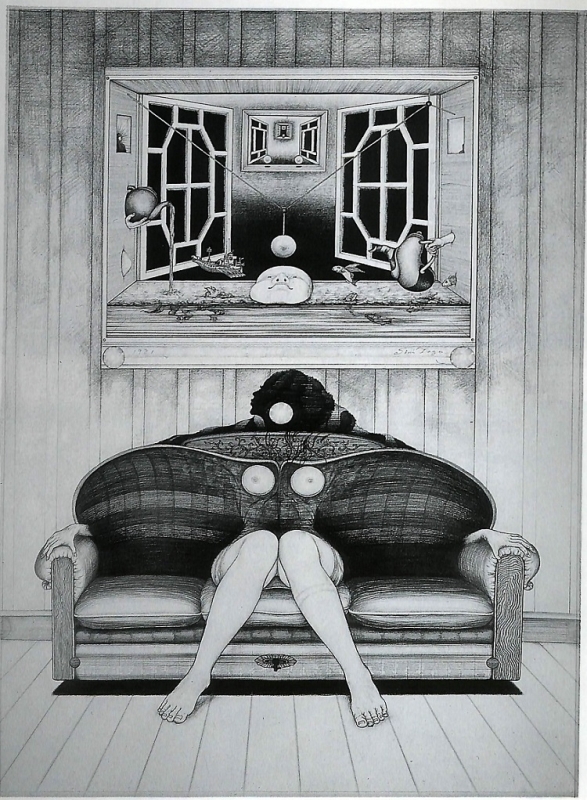
Fig.6. The World of Edogawa Ranpo (1991)
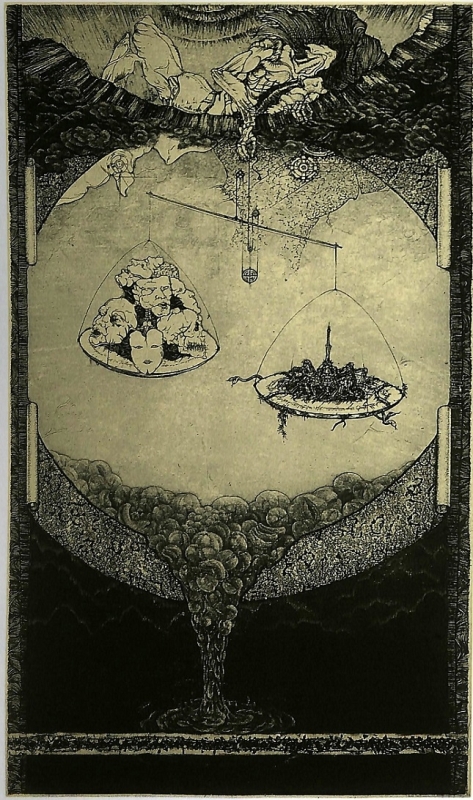
Fig.7. The World of Edogawa Ranpo (1991)
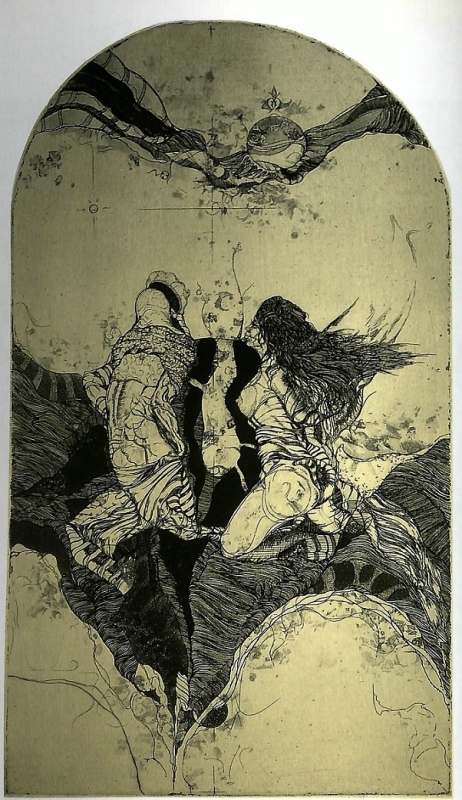
Fig.8. The World of Edogawa Ranpo (1991)
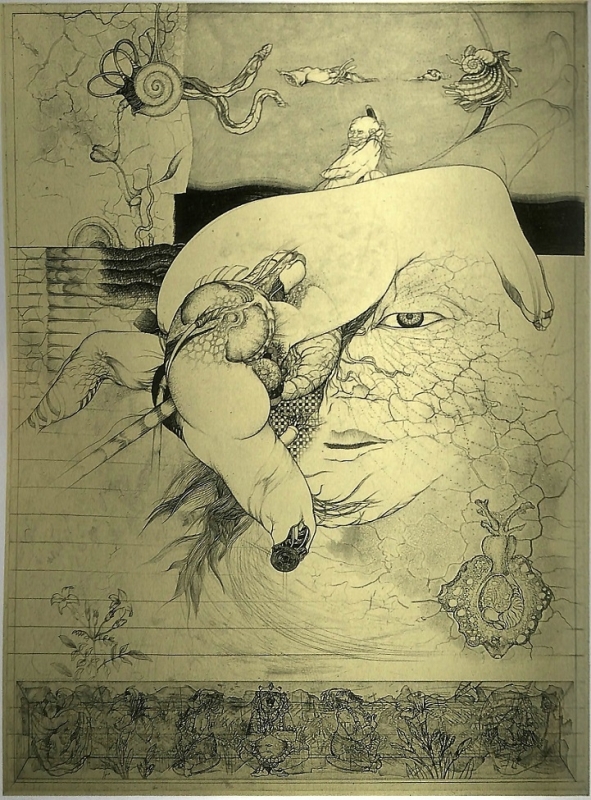
Fig.9. The World of Edogawa Ranpo (1991)
Anthropomorphized Fish
The first thing that strikes the eye in his images, created by copper plate printing, is his work with the grotesque. In these images, the artist creates monsters of various types, such as anthropomorphized fish, human beings with multiple arms, legs and faces, fused with creatures that we don't know for sure what they are. By confusing the familiar with what is strange and elusive, Shin Taga disarticulates the human anatomy, transforming it into a labyrinth, as we do not know if it is just one body or several that are merged in his representations. The feeling we have in front of these images is that the artist used the combination to represent creatures that are at the same time so strange and fascinating that they do not find parallels in reality.
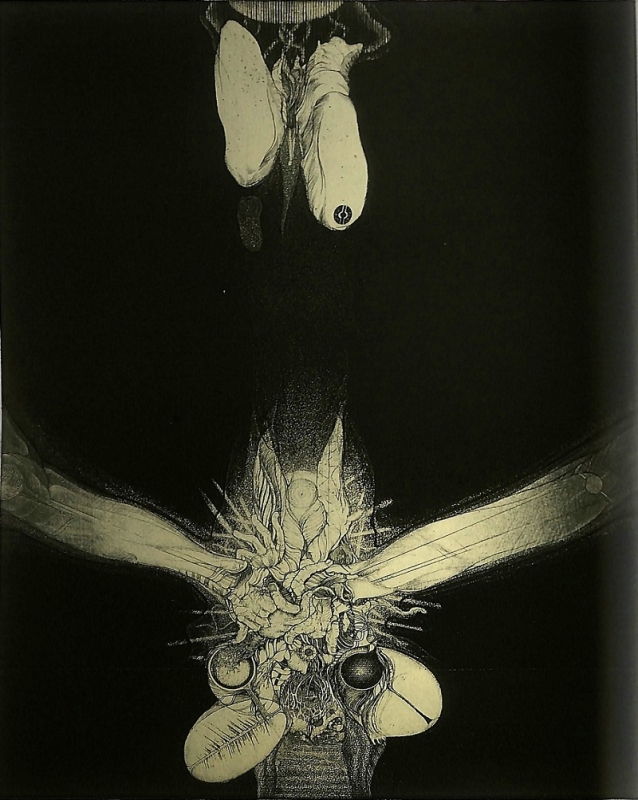
Fig.10. The World of Edogawa Ranpo (1991)
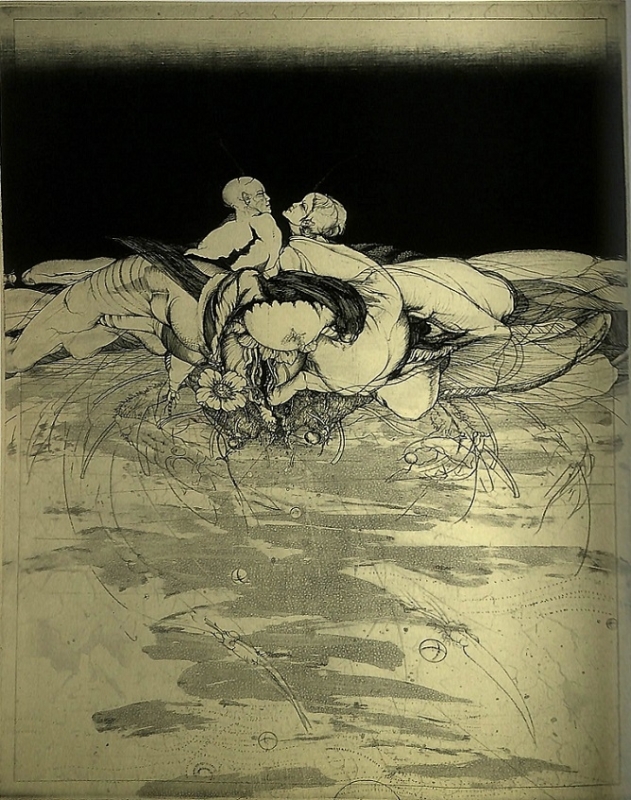
Fig.11. The World of Edogawa Ranpo (1991)
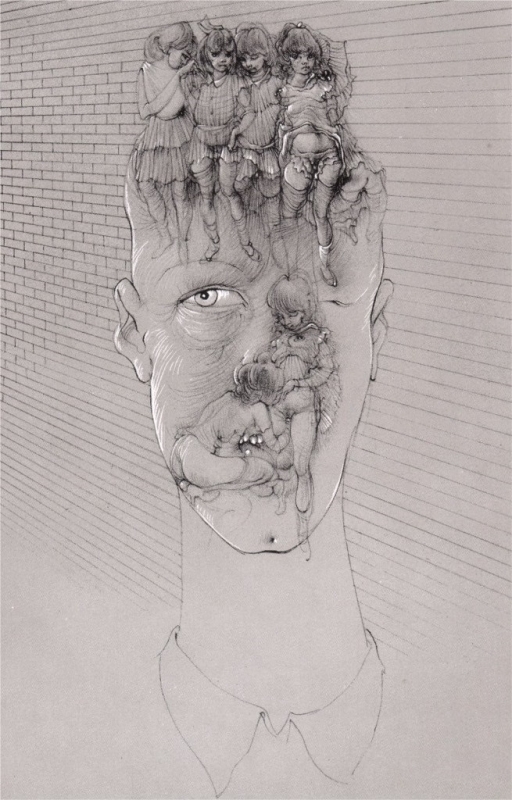
Fig.12. Artwork by Hans Bellmer
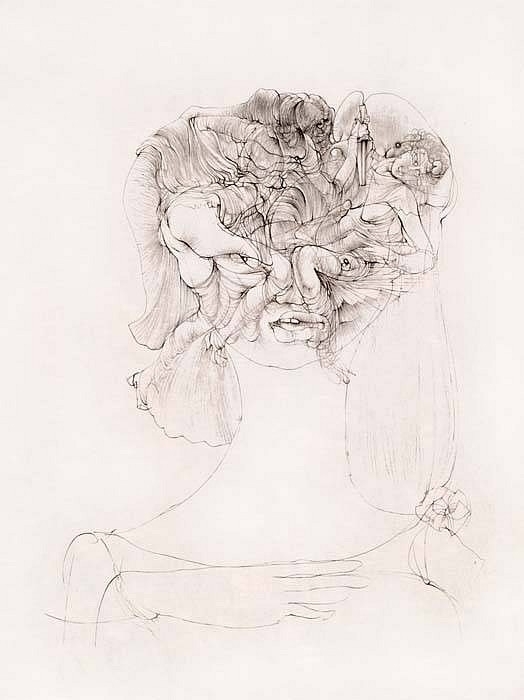
Fig.13. Artwork by Hans Bellmer
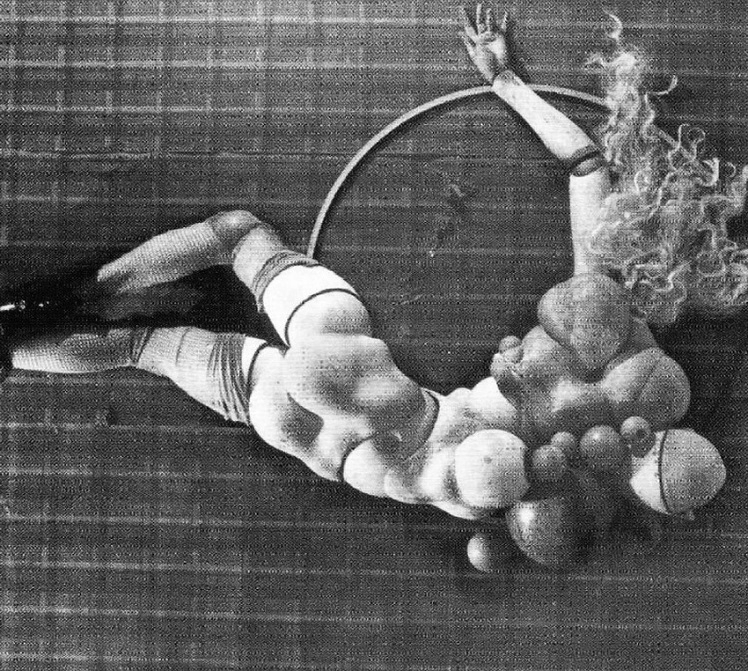
Fig.14. The Doll (1935) by Hans Bellmer
Necrophilia
Like other ero guro artists, the grotesque in Shin Taga's work is also accompanied by eroticism. It is interesting to note that the grotesque and eroticism is not something restricted to these artists. We can find them in the most diverse representations such as anthropomorphized genital organs or fused to animals, zoophilia, necrophilia, and sex with supernatural creatures such as yokais and yureis on Edo period artists like Kobayashi Eitaku, Kyosai Kawanabe, Keisai Eisen, Utagawa Kunisada.
In Premium more on the delicacy of Shin Taga's strokes, similarities with artists such as Hans Bellmer and Harry Clarke, the disconcerting qualities of his works, his striking use of the human anatomy, its seductive realities, and dozens of additional artworks.
Click HERE for the lewd black caricatures of the Japanese cartoonist Toru Nishimaki

